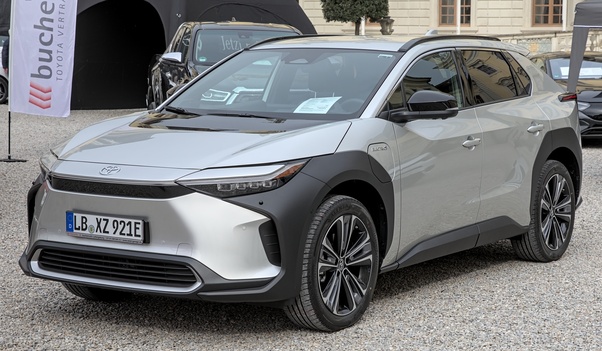Introduction
Toyota, a global automotive giant, has been a significant player in the automobile industry for decades. Known for its reliability, innovation, and environmental consciousness, Toyota’s journey in the electric vehicle (EV) sector is a testament to its forward-thinking approach and commitment to sustainability. This article explores Toyota’s track record in electric cars, highlighting key milestones, technological advancements, and future aspirations.
Early Beginnings: Hybrid Technology
Toyota’s foray into the electric vehicle market began with its pioneering hybrid technology. The launch of the Toyota Prius in 1997 marked a significant milestone. The Prius was the world’s first mass-produced hybrid car, combining an internal combustion engine with an electric motor. This innovation not only improved fuel efficiency but also set the stage for Toyota’s future in electrification.
The success of the Prius was monumental, leading to widespread adoption of hybrid technology across Toyota’s lineup. Models such as the Camry Hybrid and Highlander Hybrid followed, cementing Toyota’s reputation as a leader in environmentally friendly automotive technology.
Expanding the Electric Horizon: Plug-In Hybrids
Building on the success of hybrid vehicles, Toyota introduced plug-in hybrid electric vehicles (PHEVs). The Prius Plug-In Hybrid, launched in 2012, allowed drivers to recharge the vehicle’s battery using an external power source, extending the electric-only driving range. This model represented a critical step toward full electrification by blending the benefits of hybrid and electric vehicles.
The Toyota Prius Prime, an improved version of the plug-in hybrid, was introduced in 2016. It featured a larger battery and greater electric-only range, showcasing Toyota’s commitment to advancing EV technology while maintaining practicality and affordability.
Stepping into Pure Electric Vehicles
Despite its early start with hybrids, Toyota was relatively cautious in entering the pure electric vehicle (EV) market. However, recognizing the global shift towards zero-emission vehicles, Toyota launched its first mass-produced battery electric vehicle (BEV), the Toyota bZ4X, in 2022. The bZ4X, part of Toyota’s “Beyond Zero” (bZ) series, represents a new era for the company, focusing entirely on electric propulsion without any internal combustion engine.
The bZ4X is built on Toyota’s dedicated e-TNGA platform, developed specifically for electric vehicles. This platform offers a flexible architecture that can be adapted for various types of EVs, underscoring Toyota’s strategic approach to future-proofing its electric vehicle lineup.
Fuel Cell Electric Vehicles: Hydrogen as an Alternative
In addition to battery electric vehicles, Toyota has been a strong proponent of hydrogen fuel cell technology. The Toyota Mirai, introduced in 2014, is a hydrogen fuel cell electric vehicle (FCEV) that emits only water vapor as a byproduct. The Mirai’s second generation, launched in 2020, boasts improved range, performance, and a more luxurious design, aiming to make hydrogen fuel cells a viable alternative to traditional BEVs.
Toyota’s investment in hydrogen infrastructure and collaboration with governments and other companies highlights its belief in a multi-faceted approach to achieving zero emissions, where hydrogen plays a complementary role to battery electric solutions.
Future Aspirations and Challenges
Looking ahead, Toyota has ambitious plans for its electric vehicle strategy. The company aims to introduce 15 new BEV models by 2025, with the goal of achieving carbon neutrality by 2050. Toyota’s strategy includes expanding its bZ series, enhancing battery technology, and leveraging solid-state batteries, which promise higher energy density and faster charging times compared to current lithium-ion batteries.
However, Toyota faces challenges in the competitive EV market, including catching up with early leaders like Tesla and adapting to rapidly changing consumer preferences and regulatory landscapes. The company’s relatively late entry into the BEV market compared to some competitors means it must accelerate innovation and production to secure a substantial market share.
Conclusion
Toyota’s track record in electric vehicles is marked by a steady evolution from hybrid technology to full electric and hydrogen-powered vehicles. With a solid foundation in hybrids and a clear vision for the future, Toyota is well-positioned to play a significant role in the global transition to sustainable mobility. As the automotive industry continues to evolve, Toyota’s commitment to innovation and environmental stewardship will be crucial in shaping the future of electric transportation.
